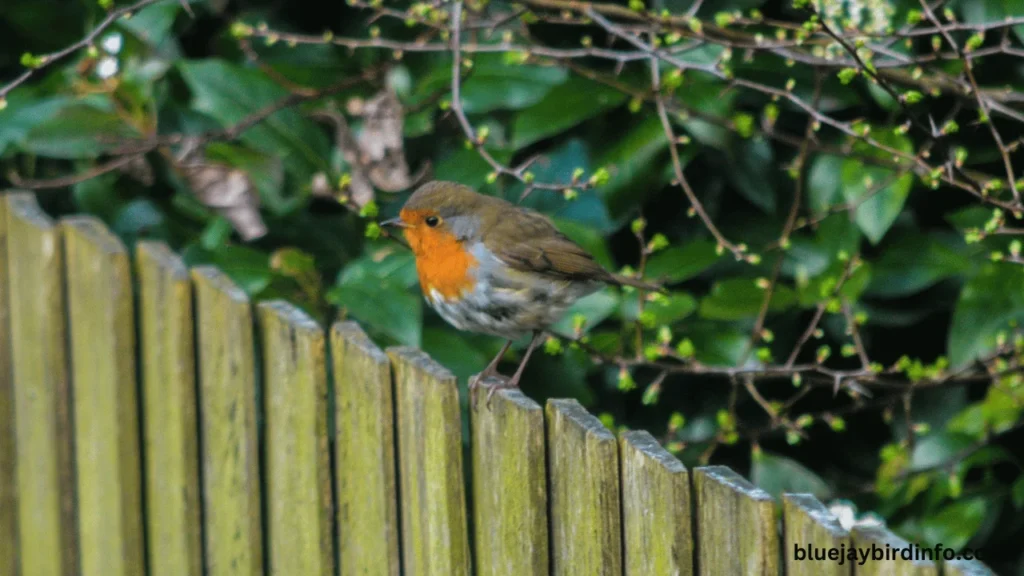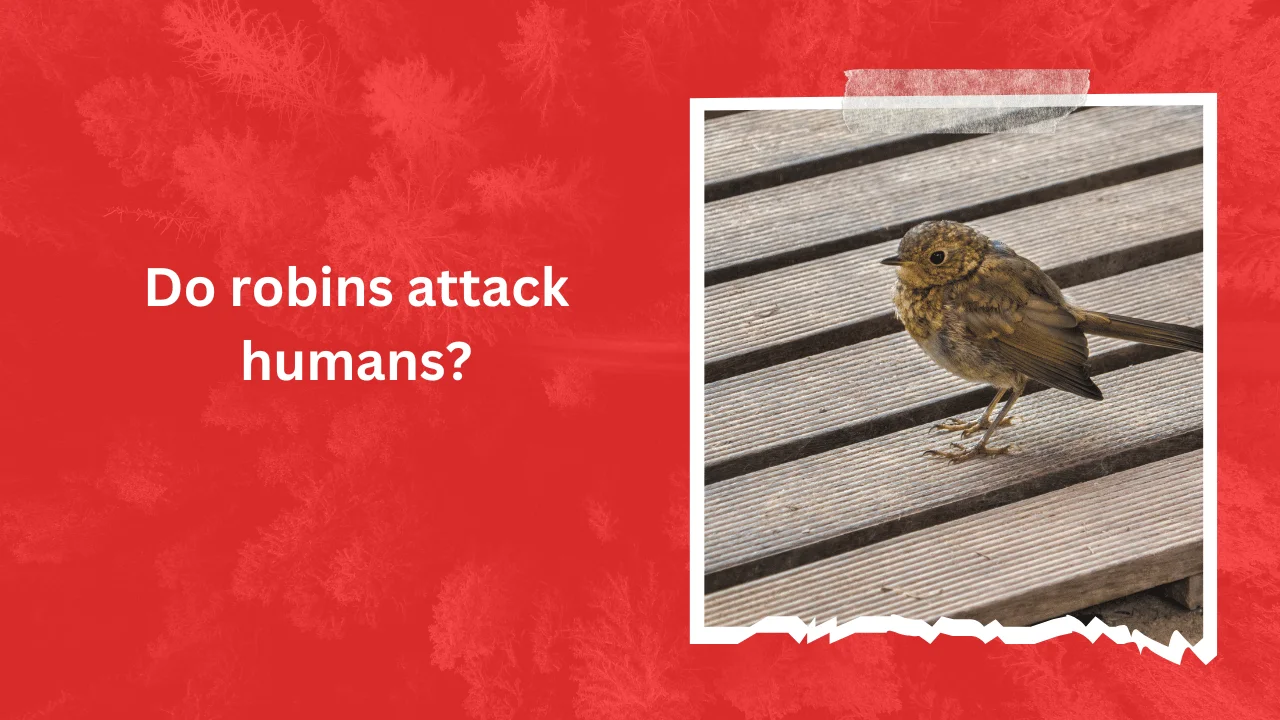Ever been enjoying a peaceful afternoon in your backyard when a Robin suddenly swoops down, dive-bombing you with a flurry of chirps and frantic wingbeats?
It can be a startling experience! These seemingly harmless birds, known for their cheerful songs and cheerful red breasts, can exhibit surprising aggression. But fear not, bird lovers! This behavior is actually quite normal and driven by a powerful instinct – territory defense.
Understanding why Robins act this way can not only ease your worries but also provide a deeper appreciation for these fascinating creatures. Imagine your backyard as a Robin’s prized possession, a haven where they raise their young and gather food.
Now, imagine someone intruding on this space, be it another Robin or, perhaps, an unsuspecting human. This is where the territorial instincts kick in, and Robins will readily defend their turf with surprising ferocity. So, are Robins out to get you? Not quite.
Let’s delve deeper into the world of Robin territoriality and understand the reasons behind their occasional “attacks.”
Contents
Territorial Behavior
A territory is a defined area that an animal defends against intrusion by others of its species. Robins are highly territorial, especially during the breeding season.
The size and shape of a Robin’s territory can vary depending on factors such as food availability and population density. Typically, a territory will encompass a suitable nesting site and sufficient foraging grounds.
To defend their territories, Robins employ a variety of aggressive behaviors. These include:
- Singing: Robins use their songs to advertise their territory and deter intruders.
- Posturing: They may puff up their feathers, spread their wings, and adopt a threatening posture.
- Physical Confrontations: In more intense disputes, Robins may engage in physical fights, such as chasing, pecking, and fighting.
Factors Influencing Territoriality
Several factors can influence the intensity of territorial behavior in Robins:
- Breeding Season: Territorial behavior intensifies during the breeding season as Robins compete for nesting sites and mates.
- Food Availability: When food is scarce, Robins may become more territorial, defending smaller territories with richer food resources.
- Population Density: In areas with high population density, competition for territories can be intense, leading to more aggressive behavior.
Aggressive Behaviors
Song and Display: Robins use their songs to advertise their territory and deter intruders. They may also perform threat displays, such as wing-fluttering and tail-fanning, to intimidate rivals.
Physical Confrontations: In more serious disputes, Robins may engage in physical confrontations, such as chasing, pecking, and fighting. These fights can result in injuries, and in rare cases, even death.
Injury and Mortality: While most territorial disputes result in minor injuries, severe confrontations can lead to significant harm or even death.
The Role of Hormones
Hormones play a crucial role in regulating aggressive behavior. Testosterone, in particular, is linked to increased aggression and territoriality. During the breeding season, testosterone levels in male Robins rise, leading to more intense territorial defense.
Seasonal Variations in hormone levels can influence territorial behavior. As the breeding season progresses and testosterone levels decline, territorial aggression may decrease.
Human Interaction and Nest Protection

It’s important to observe Robin nests from a distance to minimize disturbance. Avoid approaching nests too closely, as this can stress the birds and may lead to aggressive behavior.
To protect nests from predators such as cats and squirrels, consider installing physical barriers or deterrents. You can also create a safe nesting environment by planting dense shrubs and trees.
If you encounter an injured or orphaned Robin, it’s best to contact a local wildlife rehabilitator for advice. Avoid handling the bird yourself, as this can cause further stress and injury.
Conclusion
Understanding Robin territorial behavior is essential for appreciating their complex social dynamics. By respecting their territories and minimizing human disturbance, we can coexist peacefully with these fascinating birds.
It’s important to remember that while Robins may exhibit aggressive behavior, they are also gentle creatures that play a vital role in our ecosystems. By protecting their habitats and promoting conservation efforts, we can ensure the survival of these beloved birds.
FAQ’s
Why do Robins attack humans?
Robins primarily attack humans when they feel threatened or perceive a threat to their nest or territory. This aggressive behavior is most common during the breeding season when they are fiercely protective of their young.
How can I avoid being attacked by a Robin?
To avoid being attacked by a Robin, it’s best to maintain a safe distance from their nests and avoid making sudden movements or gestures. If you accidentally get too close, slowly back away and avoid making eye contact.
What should I do if a Robin attacks me?
If a Robin attacks you, the best course of action is to calmly move away from the area. Avoid waving your arms or making sudden movements, as this may escalate the attack.
Are male or female Robins more aggressive?
Both male and female Robins can exhibit aggressive behavior, but males are often more territorial, especially during the breeding season.
Can I plant flowers near a Robin’s nest?
Yes, you can plant flowers near a Robin’s nest, but avoid pruning or trimming plants near the nest, as this may disturb the birds.
How can I protect Robin nests from predators?
To protect Robin nests from predators, you can install physical barriers, such as bird netting or cages. Additionally, you can deter predators by using scare tactics, like reflective tape or scarecrows.








